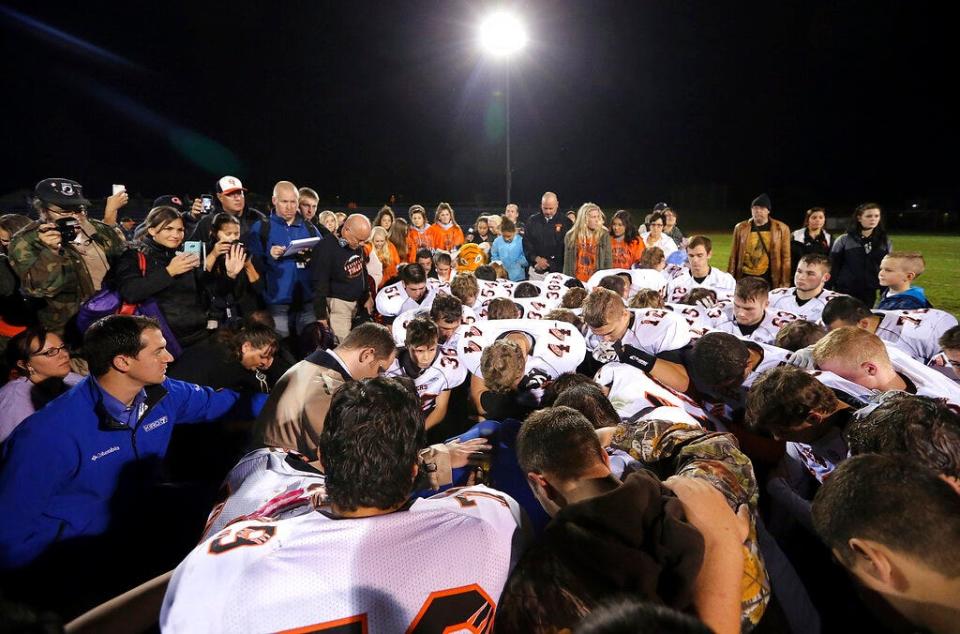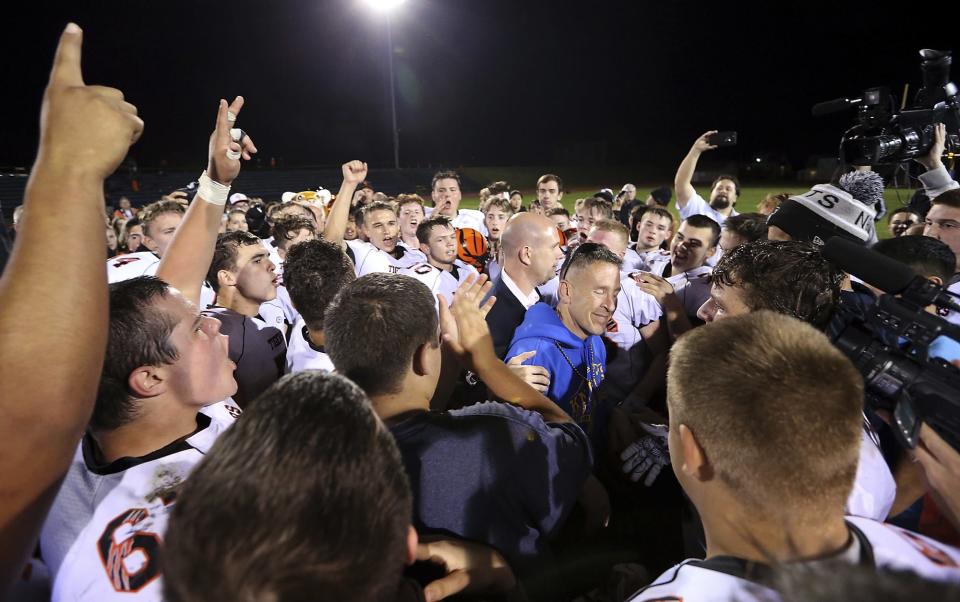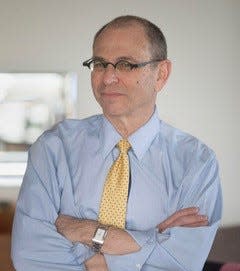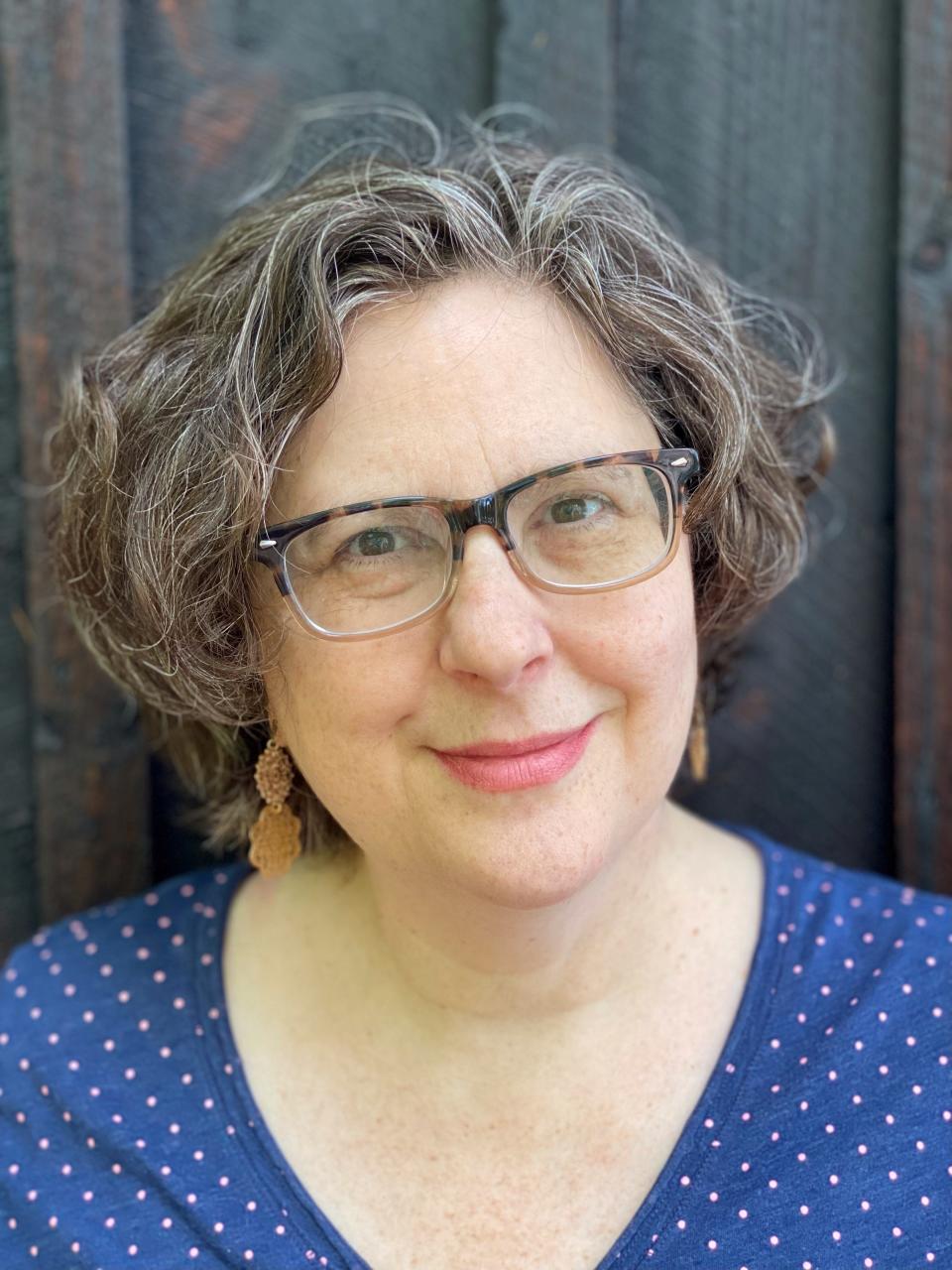Opinion: 'Praying coach' ruling one more nail in coffin of separation of church and state
![Former Bremerton High School assistant football coach Joe Kennedy was in the national spotlight over his refusal to stop praying at the 50-yard line following games. Kennedy said his fight with the school district. [Via MerlinFTP Drop]](https://s.yimg.com/ny/api/res/1.2/RhuFRdOxv4trUg3ksEZF2w--/YXBwaWQ9aGlnaGxhbmRlcjt3PTEyNDI7aD05MzM-/https://media.zenfs.com/en/cincinnati-com-the-enquirer/c2e63303449c88f91279f91cfb8b2689)
If God is everywhere, why must a football coach pray on the 50-yard line? The answer is obvious, his praying had nothing to do with personal religious expression and everything to do with politics, publicity and proselytizing. Praying at mid-field was his way of promoting his sectarian religious beliefs. It was an abuse of his position. As a school employee, he imposed his religious beliefs on the school community.
This is the issue that the U.S. Supreme Court ruled on in Kennedy v. Bremerton School District – whether a school employee can publicly pray in front of the students. The First Amendment provides that the government shall neither establish a religion nor prohibit the free expression of religion. It also protects our freedom of speech. A public school is a government actor, and public-school teachers and coaches can also be government actors. So the First Amendment protects students from the school’s imposition of religion.

Of course, former Bremerton High School assistant football coach Joe Kennedy argued that the school district violated his religious rights when it blocked his public prayers on the field. He claimed that not being able to "pray" on the 50-yard line was an infringement of his private religious beliefs and his freedom of speech. He said this was about his relationship to God.
But praying at the 50-yard line was intentionally provocative. If the coach truly wanted a moment to pray to God, he could have done so away from public view in a private and non-controversial manner. If God is everywhere, the coach could have privately prayed somewhere else. Surely such a moment would have been far more contemplative. In fact, the school district tried to accommodate the coach’s needs by offering him a private place to pray. But he rejected this, because his need wasn’t to pray privately – it was to do so in public where the students under his guidance would be impacted. Praying on the 50-yard line was all about being seen. It was designed to be a public spectacle.

Coaches are in a position of power. So by definition, there is a power imbalance between coaches and those they coach. Young students may fear that they won’t get to play if they don’t pray or at least feign prayer with the coach. This is a form of coercion. And the First Amendment is meant to shield the students from this type of imposition.
The separation of church and state protects all of our children from religious coercion by those who hold positions of authority in public schools. In particular, it protects citizens of minority religions and no religion from the imposition of the currently popular religion. Regrettably, the Supreme Court considered only the coach’s needs and in doing so, violated the rights of the students. Students want the approval of their coaches, and if a coach is kneeling in prayer on the 50-yard line, at least some of the students will feel that they have to pray to play.
The court’s ruling is one more nail in the coffin of separation of church and state. Through its twisted and tortured logical, the court is destroying a fundamental principle that has ensured that all of our nation’s citizens are treated as full and equal citizens. No doubt this ruling will open the way for prayer returning to school. This is sure to marginalize more students. This ruling is bad for students. And it is bad for America.
Robert B. Barr is rabbi of Congregation Beth Adam and Rachel Smith is Beth Adam's board president. Congregation Beth Adam is an independent, liberal synagogue in Loveland, Ohio.


This article originally appeared on Cincinnati Enquirer: Opinion: 'Praying coach' ruling one more nail in coffin of separation of church and state

